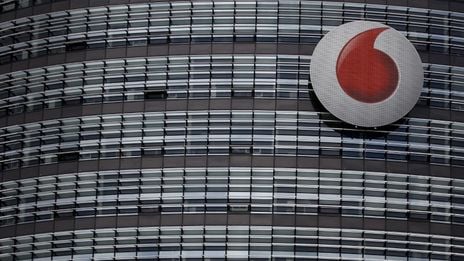If the deal, reported to be worth 16.5 billion euros (14.6 billion pounds) including debt, is to be waved through it should be only on the condition that the merged entity's network is opened to third-party access, the Buglas industry group said.
Vodafone revived talks in February about buying Liberty's cable assets in continental Europe, with the main prize being Germany's Unitymedia. Sources say a deal could be announced as soon as next week.
That has alarmed competitors who say that, if it goes through, the transaction would reconstitute a dominant player that was broken up when it was sold off by Deutsche Telekom in the last decade.
"A new monopoly would be created," Wolfgang Heer, head of the Buglas industry group that comprises 80 companies and municipalities, told Reuters.
Critics argue that, with the cable operators also offering high-speed internet to households and businesses, a merged business should, like Deutsche Telekom, have to open access to its network to ensure sufficient competition.
The head of Germany's Federal Network Regulator, BNetzA, may impose such a requirement if he finds cable operators dominate regional markets. Price controls would also be conceivable, Jochen Homann told a newspaper this week.
Both Vodafone and Liberty declined to comment.
GIGABIT SOCIETY
Vodafone and Liberty have flirted repeatedly with a major deal in recent years, and the option now on the table would exclude Liberty's UK assets while including operations in other central European markets.
There's little doubt, though, that the deal revolves around Unitymedia, the leading operator in the German states of Hesse, Baden-Wuerttemberg and North Rhine-Westphalia with 7.2 million cable customers.
Vodafone, Germany's No.2 wireless player, operates across the rest of the country, meaning there is no overlap in the two companies' fixed-line assets, the deal's backers say.
Buglas argues, however, a merger would set back the cause of providing super-fast broadband across Germany by 2025, creating a so-called 'Gigabit society' that is competitive with other hi-tech economies.
In a position paper seen by Reuters, it said the proposed deal was "not approvable" and it would call for it to be referred to European Union competition authorities for review.
"If the deal is approved, against expectations, then strict conditions must be attached," it said, adding this should require that the network is opened to third parties.
Sources familiar with the talks say a referral to the European Commission is likely in any case given the deal's size, a view backed by German competition officials.
Deutsche Telekom CEO Tim Hoettges has already clashed with Vodafone's Vittorio Colao on the Liberty deal, calling it "totally unacceptable".
The market leader remains sceptical: "Experts are rightly critical of re-monopolising the cable networks," it said in comments to Reuters.
The VATM telecoms industry lobby, of which Vodafone is a member, took a more favourable view.
"VATM would welcome it from the point of view of consumers if there is a strong competitor to Deutsche Telekom," it said.
"It is a matter for the regulator to examine whether any conditions are necessary from a competition perspective."
(Additional reporting by Paul Sandle; Editing by Mark Potter)
By Douglas Busvine






